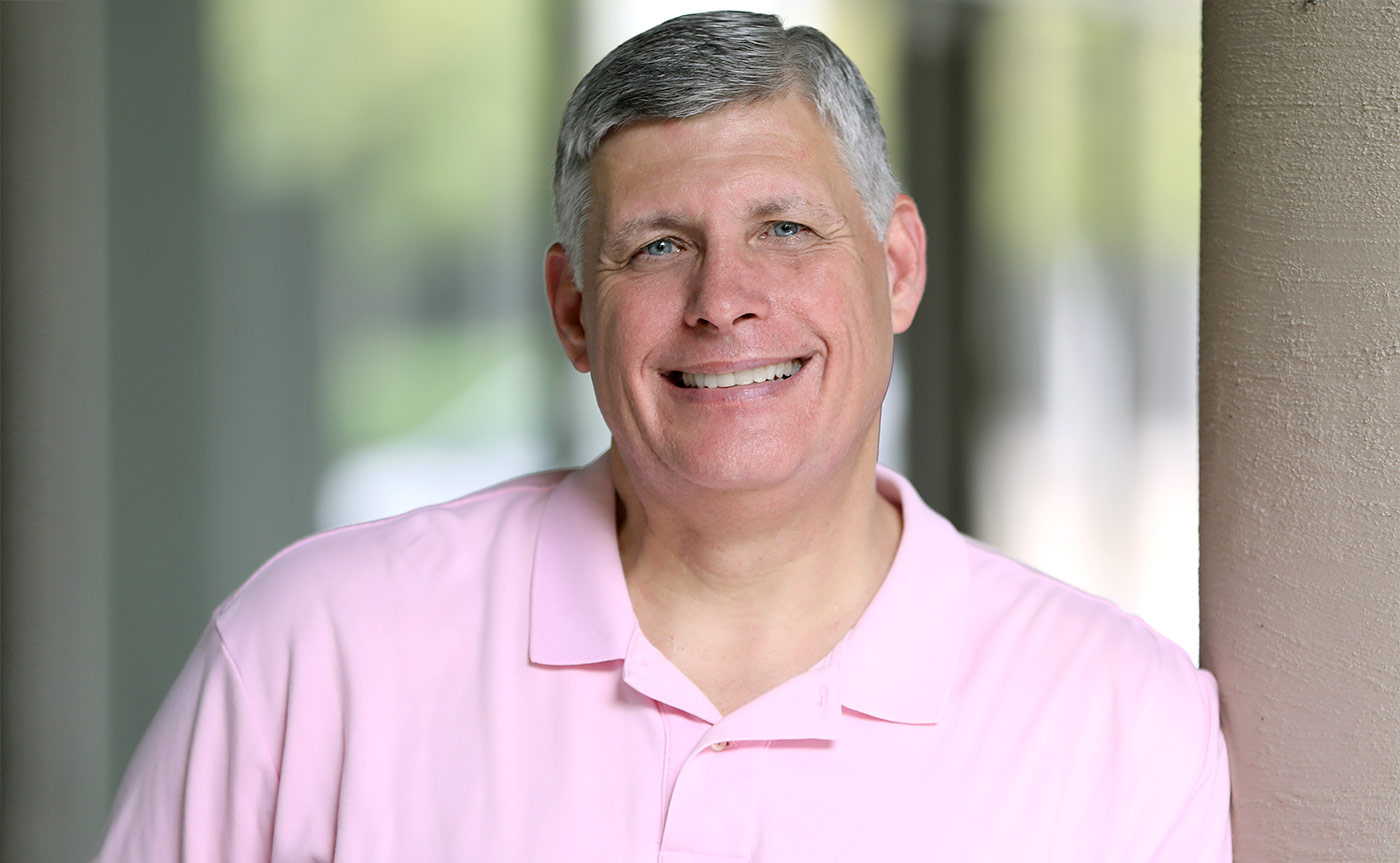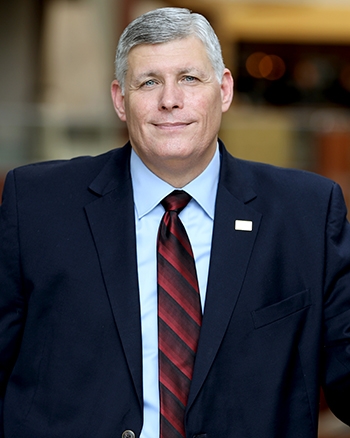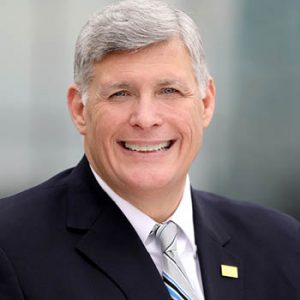Dedicated to a rigorous financial-planning process
Dedicated to a rigorous financial-planning process

David Turner, MSF, CFP • Greenville-Spartanburg, SC
My Planning Pro • LPL Financial
Read full biography below
I entered law enforcement after a brief stint at Furman University, and I took a great deal of satisfaction from that work. I started as a sheriff’s deputy with the Greenville County Sheriff’s Office and later joined the Greenville City Police Department, putting in about 11 years altogether.
I started studying finance after being introduced to the topic by a friend. I had a natural affinity for learning about applied finance and how money works. It appealed to my analytical nature. I saw that this career path could offer both personal rewards and allow me to help others.
I began my career with an insurance company. I then progressed through several positions as a financial specialist with a large bank and as an independent financial advisor. I was drawn to the art and science of rigorous financial planning and how it provides a cornerstone for developing actionable recommendations for clients. During this period, I fulfilled two important personal objectives: completing my undergraduate degree and obtaining further significant professional education. I earned a bachelor’s degree with a major in sociology from the University of South Carolina and a Master of Science degree in finance from the College for Financial Planning. I also became a Certified Financial Planner professional.
I now have over two decades of experience in the financial-services industry. The firm I founded, My Planning Pro, has two offices in the Greenville-Spartanburg area, and I currently work with clients in seven states.
Our mission is to help our clients prepare for their financial future by consistently applying written financial-planning processes and by providing client-specific advice and personalized customer service. By employing these fundamental principles and uncompromising integrity, our advisors pave the way for our clients to pursue their financial goals. We work with clients who are interested in building a long-term relationship with a trusted and knowledgeable financial advisor. We strive to deliver high-quality education and outstanding service to clients underscored by a commitment to mutual trust, understanding, and respect.
I believe deeply in the planning process. Whether a client is interested in a review of their entire financial life or a specific topic such as insurance, college funding, or investments, I think the most effective way to pursue success with any goal is to undertake a written planning process, implement the plan, and review regularly for progress. I believe it is the process, as opposed to the product, that has the greatest impact on producing success in the long run.

The process begins with ascertaining if the client-advisor relationship is a good fit—both in personality and with respect to client goals and advisor skill set. I need to make sure that clients are committed to diligently working through our process and that I feel we have the requisite skills and resources to help them meet their objectives. Through our experience, we have learned it is important that both the advisor and the client are clear on what to expect if we are to develop and maintain a successful working relationship—one where we can work to help a client or client couple strive to achieve their financial and lifestyle goals.
Once all parties feel there is a good match after our initial meeting, we begin a specific onboarding process. We introduce this process to prospective clients by sending them high-quality materials on it ahead of time. We proceed in ensuing meetings with a methodology that encourages the client to marry their money to their specific purposes or goals via the planning process. If they are an investing-only client, I follow a risk-measuring and review process that focuses on consistency of return and maximum drawdown during major market events.
For the majority of clients, we are addressing a broad range of financial-planning needs. Our process might include investment management, retirement planning, risk management, tax planning, estate planning, debt and cash flow, educational planning, and philanthropic planning. Our planning methodology is designed to ensure that our clients will not outgrow the process as their lives unfold and needs evolve. We help clients prepare and navigate for critical financial events, which can be as diverse as planning for retirement, selling a business, receiving an inheritance, buying a recreational property, or proactively planning for their legacy.
I think cash-flow planning is the most effective way of planning, although several different approaches can also be effective. My process tends to be very detailed because it is more than just “gap planning.” It is helping clients to understand the gap, for instance, in their insurance coverage, and exploring the different options that might address the gap. It’s done over many appointments where we spend quite a bit of time educating clients and giving them a deeper view of what the finance world is really like.
 My investment philosophy centers on what I call “downside management.” After 25 years in the business and seeing quite a few significant downturns, we know that clients hate losses more than they love gains. There’s a strong psychological or behavioral-finance component to that. I connect my analytical approach to finance and investment management with a strong appreciation for client attitudes around investing. My investment-planning process is grounded in an extensive background in finance and investment theory. I care about scenario-building, Monte Carlo simulations, and especially about the sequence of returns. I take a strong due diligence perspective to find out exactly what the target needs of the client are, and then I develop investment recommendations that strive to meet their objectives over the long term.
My investment philosophy centers on what I call “downside management.” After 25 years in the business and seeing quite a few significant downturns, we know that clients hate losses more than they love gains. There’s a strong psychological or behavioral-finance component to that. I connect my analytical approach to finance and investment management with a strong appreciation for client attitudes around investing. My investment-planning process is grounded in an extensive background in finance and investment theory. I care about scenario-building, Monte Carlo simulations, and especially about the sequence of returns. I take a strong due diligence perspective to find out exactly what the target needs of the client are, and then I develop investment recommendations that strive to meet their objectives over the long term.
I believe in actively managed strategies and think they can provide more dollars in a client’s account over time than that of a passive portfolio, even when the average returns might be similar. This is because investment returns are not normally distributed—they’re abnormally distributed. That said, passive strategies can play a valuable role in an actively managed portfolio approach. The core point is that you can build a multiple-strategy portfolio using a “safety first,” actively managed approach that I think provides a stronger probability of earning the minimum required returns over time than a purely passive approach.
I began to realize early in my career that you had to be willing to change a client’s portfolio. You had to be willing to tilt it a little more to the aggressive side, for example, if the government’s going to print money. You have to be willing to tilt it a little more to the conservative side if the Fed is raising rates like they did in 2000. You need to provide the opportunity to keep the net amount invested at its highest possible point to continue to generate dollars in those portfolios. While individual funds don’t always outperform their indexes, portfolios can and do rather regularly.
I have found a few select third-party managers who can systematically build this kind of downside portfolio-management approach far better than I could do on my own. Currently, I use investment services from a variety of sources, including our broker-dealer, LPL Financial, and about three outside money managers. As I evaluate managers, I look at the core underpinnings of their approach to downside management and sequence of returns, their fees, and the specific types of strategies they use to manage risk—there are many different approaches out there. I am very pleased that I can bring this type of strong and sophisticated investment-management process to our clients. And I believe they highly value this investment approach.

Setting client expectations early
David Turner is the founder and principal financial advisor at My Planning Pro, an advisory firm located in the Greenville-Spartanburg area of South Carolina. Mr. Turner says, “Through our experience, we have learned it is important that both the advisor and the client are clear on what to expect if we are to develop and maintain a successful working relationship—one where we can work to help a client or client couple strive to achieve their financial and lifestyle goals.”
As part of this process, Mr. Turner’s firm sets out the following specific principles—referred to as the “Keys to a successful relationship”—that outline what clients can expect from his firm.
“Our firm will always:
- Strive to acquire and maintain a thorough understanding of your financial goals.
- Update your current financial information on a regular basis.
- Carefully assess and monitor your investment risk and time frame.
- Explain the implications of all recommended financial planning strategies and gladly answer any questions you may have.
- Update you as and when appropriate by email, mail, and phone.
- Meet with you regularly to review your financial plan.
- Act as your primary financial advisor, coordinating the efforts of other related professionals as and when required.
- Treat you with the utmost respect and professionalism.”
 David Turner is the founder and principal financial advisor at My Planning Pro, an advisory firm located in the Greenville-Spartanburg area of South Carolina. Mr. Turner says his firm’s mission is to “help clients prepare for their financial future by consistently applying a disciplined planning process and by providing client-specific advice and personalized client service.”
David Turner is the founder and principal financial advisor at My Planning Pro, an advisory firm located in the Greenville-Spartanburg area of South Carolina. Mr. Turner says his firm’s mission is to “help clients prepare for their financial future by consistently applying a disciplined planning process and by providing client-specific advice and personalized client service.”
Mr. Turner was raised in Greenville, where he has lived much of his life. His parents both worked in the textile industry, and he says their “work ethic, integrity, and caring attitude” were very positive influences in his life. He adds, “An important decision my parents made was to send my brother and me to a private Christian school where we received a strong education and exposure to students and teachers from different backgrounds.” Mr. Turner says he was a good student but that his passion then was playing basketball and baseball.
Mr. Turner attended Furman University briefly before pursuing a career in law enforcement. He became a sheriff’s deputy with the Greenville County Sheriff’s Office and later joined the Greenville City Police Department. During this time, Mr. Turner says he “developed a genuine interest in finance and began considering ways of pursuing a career in the field.” He began his financial-services career with an insurance company in Charlotte, North Carolina. He has worked with a large bank as a financial specialist and served as an independent financial advisor with several broker-dealers.
As he learned finance from the practical side, he says he began “to desire to learn more from an academic perspective.” In 2007, he received a bachelor’s degree in sociology from the University of South Carolina (USC), and in 2013, he received a master’s degree in finance, with a financial analysis major, from the College for Financial Planning. He is a Certified Financial Planner professional.
Mr. Turner and his wife, who is a trauma nurse in quality control for a large regional hospital, were married in 2016. He says, “The dynamics were interesting, as I had an instant family of five children and now one grandchild. I have greatly enjoyed those relationships.” Mr. Turner and his wife are active in their local church, where he is an elder. He is also an active member of the Financial Planning Association and serves as the upstate director for the South Carolina chapter. He says in his spare time he enjoys music, working out, following USC sports, and spending quality time with his wife and family.
Disclosure: Securities offered through LPL Financial, member FINRA/SIPC. Investment advice offered through Good Life Advisors LLC, a registered investment advisor. Good Life Financial Advisors and Good Life Advisors LLC are separate entities from LPL Financial. Certified Financial Planner and CFP are trademarks or registered trademarks of The Certified Financial Planner Board of Standards Inc.
Photography by Escobar Photography

